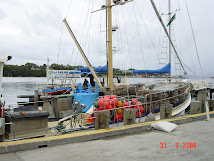Invest in Singapore property: Mortgage Insurance for Property Buyers
By www.PropertyBUYER.com.sg Singapore Mortgage Consultants
In the US or elsewhere , Insurance sector is over-saturated, insurance companies are getting too innovative in creating products. Some are borderline betting houses in our opinion and they undertake too much risks, such as buying insurance to insure against the person having the cash flow to continue to service the home loan.
There are other mortgages that can even insure against the price of the property staying above a certain valuation. Taking easy money but naked exposed risks such as such "Book-making" deals are what made some BIG insurance giants to fall. What has the world come to? (This is part of the reason how the world got into the financial crisis).
Hopefully Singapore's Assurance sector will not go astray . Some Singapore banks may give you some preferential Singapore SIBOR-SOR-fixed bank loan rates , but try to cross sell their partner's insurance package on you.
Home loan Reducing Term Insurance
Mortgage insurance is designed to ease partially the pain of a partner who has lost a loved one and still ended up taking over the liabilities of the home loan repayment.
For example , if the loan is $1,000,000 in which each person shares half the repayment burden. In this case, each person buys $500,000 of insurance. So that when a partner dies, the other partner gets $500,000 towards payment of the house. There is also what is called Mortgage insurance .
When the loan is being repaid , the principle becomes smaller , hence the insured amount is reduced and hence also the premiums.
This assures the Singapore bank that the home loan can be serviced and serves to defray default risks of singapore home loans borrowers as this insured amount may be tied to this liability .
If you are well insured and you have various policies against your death, such policy is an over-kill. Essentially whatever they call it, it's just a name. What is important is that you are able to pay or your partner is able to pay in the case of one's death .
Why must Banks sometimes force you to insure with their partner insurance company ?
Banks are increasingly doing cross sell , so this helps to increase their profits targets.
Sometimes, such bundling may or may not be the best option for the Singapore property Buyer or the Singapore home owners refinancing their properties. Please SMS (text) your property buyer Mortgage broker at Singapore GMT+8 +65 - 9782 8606, they will be able to assess the pros and cons of each home loan package choice.
Housing Insurance : home content Insurance
Home content insurance pays you if your contents are lost, stolen or destroyed. There may be various insurance riders which covers many different conditions leading to the loss or damage.
Housing Insurance : Property Insurance
Just to digress , you can guess fairly correctly how much your house costs to build. As this is the amount that the actuary department reckon it costs to re-build in the case the building is destroyed.
For example your condominium is $1,000,000. If the evaluated construction cost is $400,000, this means that $600,000 is attributed to land and $400,000 is the building cost .
Developers won't tell you how much it cost to build a condominium, therefore you can look for your Fire and building insurance to find out how much your unit is insured for to know how much is the replacement cost . (We use this method at PropertyBUYER.com.sg as a proxy for estimating building cost)
Singapore banks can then use this money to pool it into the sinking funds for the condominium to be reconstructed , into a complete and building ready for occupation .
At www.PropertyBuyer.com.sg our Singapore Home loans and mortgage consultants (www.propertybuyer.com.sg/contactus.php) can help you through your property buying process .
Singapore Property Buyer RSS
Sunday, May 30, 2010
Saturday, May 8, 2010
Invest in Singapore Properties
Invest in Singapore Properties: Home loans using two borrower and Three mortgagors.
The economic climate has recovered. The recession seems a distant memory (even though it’s only 1 year ago). Many banks have relaxed credit, including banks such as DBS, OCBC, Maybank and recently HSBC, Bank of China. And from our experience and sampling working with the banks, the easing of credit from the bank is rather across the board.
Recently up until June 2009, credit was very tight. Very high barriers were set up to qualify whether to lend out money. Property buyers or investors have a tough time to get any housing or property loans approved if they are sharing a property with multiple non-related parties. Even if they are buying an investment property, many banks would require them to put up 30% down-payment. This means a 70% loan of the property valuation.
Any complicated Singapore property deals is almost impossible with extensive processing time and uncertain end-result.
Refinancing mortgages in Singapore is equally hard as property values plummeted with loans outstanding greater than 80% of the valuation of the property.
Investing and Sharing a property in Singapore
Many family members and friends tend to get together to buy a second or third property. This phenomenon is getting more common as far as our mortgage consultancy – broker has experienced.
Usually all will share in putting up the cash for the down-payment and all will become borrowers.
Recently, Property buyers have found an innovative way to borrow for your Singapore property loans.
Many of the so called “Property Gurus or experts” with property buying or investing systems or those, “How I manage to own a multi-million dollar portfolio earning $2500 a month” are also mainly using similar ways. We will delve into the risks in the later paragraphs, remember, there are no free-lunch. Many are dishing out standard generic advice, masquerading as divine investment and view of the future.
Let us now explain how it works.
One would avail cash for down-payment while the others will make their cash flow available so as to borrow large sums of funds.
For example, Property Buying amongst three people (real example, fictitious people), Oliver, Soon Huat and Kim Seng.
Do you want to know how Oliver and Soon Huat can buy a property without having CASH down-payment?
Do you want to know how Oliver and Soon Huat can buy a property without the cash down-payment?
• Oliver earns $2000 a month
• Soon Huat earns $5000 a month
• Kim Seng is a retired cousin, who has lots of cash, but no cash flow. Cash in excess of $400,000.
Property loans Borrowers
• Oliver and Soon Huat are borrowers.
Using a very relaxed criteria and barrier, they may be able to borrow up to $800,000 to $940,000 if they have no other financial commitment and are eligible to borrow over 30 years. (Maximum loan quantum is very risky, you have to assess your risks. The amount illustrated are estimates, banks have final say in actual amount of lending offered)
Based on the cash flow (salary) of Oliver and Soon Huat, they would be able to afford to buy a property in the range of $1m to $1.175m.
What is the Cash down-payment?
The cash down-payment required would be $200,000 to $235,000.
Since Oliver and Soon Huat did not have cash, Kim Seng who is retired and seeking an investment would pay the $200,000 to $235,000 cash plus stamp duty for it.
How does the Property Buyer Investment system work?
PROPERTY LOAN BORROWERS
• Oliver and Soon Huat would make available the cash flow (salary) so that they can borrow money to buy an expensive property.
• Kim Seng would pay the cash down-payment.
PROPERTY OWNERS – Mortgagors
• Oliver, Soon Huat and Kim Seng are all co-owners and mortgagors.
• The apportionment of the asset share is agreed by the property investors in private. They can do so under the tenancy-in-common structure.
Oliver, Soon Huat maxed out their Property borrowing capacity.
The Singapore property loan was based on Oliver and Soon Huat’s credit standing and cash flow.
Since Kim Seng is the Mortgagor (owner) and not the borrower, his credit assessment is not being looked at. (Not all banks allow this)
What are the risks for Borrowers and owners of such Property Investments structures?
Oliver and or Soon Huat lose their jobs, they will be unable to repay their installment if they have no savings.
The Singapore property loan – mortgage will be in default.
Soon the bank will likely serve notice to pay up to borrowers or mortgagors (owners).
Hence, the end result is, all people are liable for the loan, not simply the borrowers.
The bank will re-possess the property and put it up in the market for sale. If the sale comes short of the outstanding loan amount, all mortgagors and owners are likely to be liable. The bank may sue all three and recover whatever monies it can.
What is the RISK for Kim Seng the Financier of the property?
If Kim Seng finances the property deal and is himself involved in several such deals, he may be able to pass the cash flow requirement (because his credit and liability is not checked).
In case Kim Seng has many such properties, if One property falls through by default of payment or installment, Kim Seng will be exposed.
In addition to that,
Kim seng may be forced to pay up for any short-fall. Because if one or multiple properties default may cause a cascade of properties to fall.
These type of Singapore property buyers or investors typically rely on rental income. If rental income is not forthcoming, trouble will come very quickly.
Subscribe to:
Posts (Atom)






